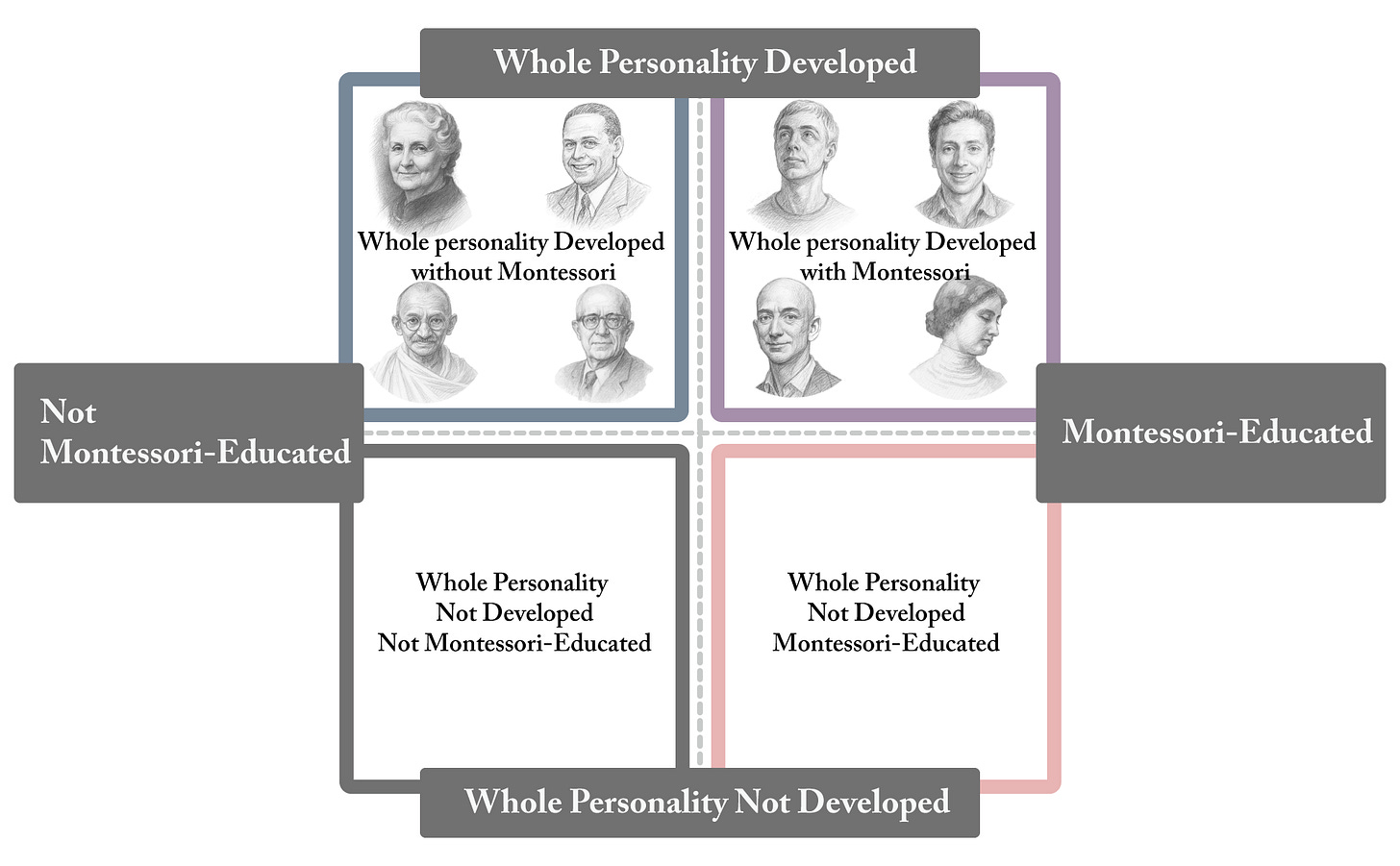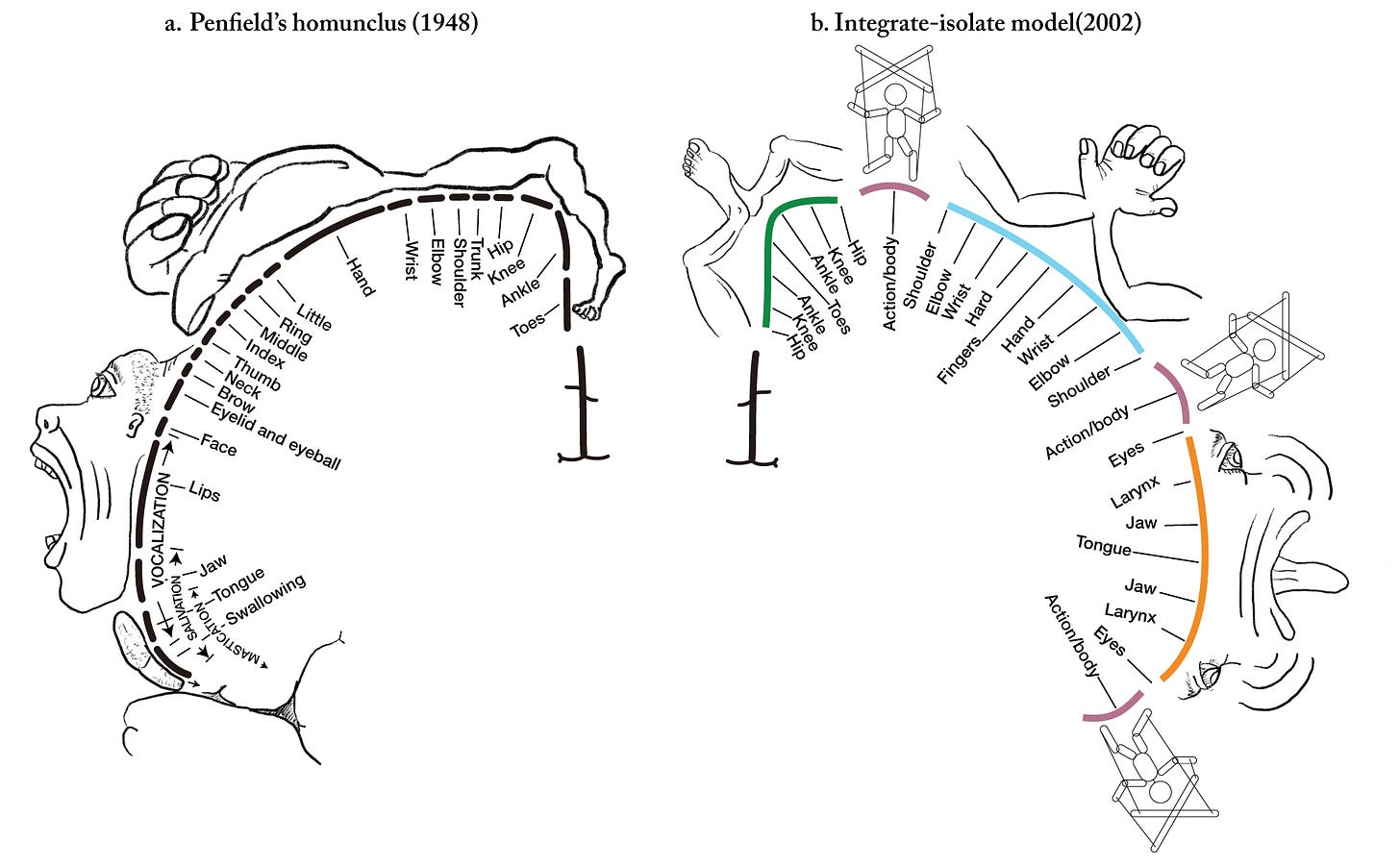We’re bringing you highlights from our conversation about Parenting and Brain Development. Instead of following countless rules and traditions, what if we could identify the core principles that actually matter?
We’d love to hear your thoughts. Feel free to share your comments!
Profile
Yati Obara
Editor-in-Chief, Scientific Montessori
Based in Japan, born in 1989. Research Scientist at StudyX and Co-Director of the nonprofit think tank Polymath Research. Holds an M.Eng. and is an AMI-certified teacher. Focused on Montessori developmental theory and AI. Mother of two.
Hiro Obara
Publisher, Scientific Montessori
Based in Japan, born in 1990. CEO of StudyX and Co-Director of the nonprofit think tank Polymath Research. Works as a software developer and game designer. Father of two.
(Good for the brain ⇔ Good for parenting) ∧ (Bad for the brain ⇔ Bad for parenting)
Hiro
I’ve been thinking...what if there were some basic principles for parenting? Something like “follow these and you’ll be fine.”
Yati
That’s an interesting starting point. Where would you begin?
Hiro
Well, take Montessori education. It aims for “whole personality development1”, right?.
But not everyone who goes through it achieves that. And plenty of people develop beautifully without it. Let’s start by sorting this out and derive the necessary and sufficient conditions for the development of the whole personality.
Yati
I created a simple chart to visualize this, four quadrants showing Montessori education versus whole personality development (Figure 1).

Hiro
Looking at this figure, it’s clear that Montessori education is not the necessary and sufficient condition for cultivating the whole personality.
Yati
It’s fascinating to think about people who developed beautifully without Montessori. Who are they? Maybe children who spent lots of time in nature, using all their senses? People often fixate on Montessori materials, the pink tower, the golden beads, but this shows something important: the materials aren’t essential. They’re not what really matters.
Hiro
I think the necessary and sufficient condition for developing the whole personality is simple: develop the brain in a healthy way.
“The key: Healthy brain development equals healthy personality development”
Yati
That makes perfect sense. When you look at what works in Montessori education, it’s exactly the things neuroscience tells us are good for brain development. The connection is clear.
Hiro
In other words, if we list what’s good and bad for the brain, we get a simple parenting guide, follow these principles and you’ll be fine.
Yati
I’ve actually summarized what helps and harms the brain. We’ll share that next. From a Montessori perspective, it all makes perfect sense.
Hiro
Neuroscience gives us even more insights for parenting. Take the homunculus, the brain’s body map. Huge areas are devoted to hands and mouth. That tells us activities using hands and reading aloud are crucial for brain development.
Yati
Actually, the homunculus just got a major update from neuroscience (Figure 2) (Gordon EM, et al. 2023). The discovery, large brain areas are dedicated to integrated movements, movements that combine different skills. This explains why everyday activities, especially cooking with children, are so powerful for development. Think about what happens when a child helps make dinner: they crack eggs using fine motor control, carry bowls using gross motor skills, measure flour and taste the sauce engaging their senses. All these different types of movement happen simultaneously. That’s exactly the kind of integration the developing brain needs.

Hiro
Traditional Japanese arts are perfect examples too, tea ceremony and ikebana(the art of Japanese flower arrangement), both require this kind of integration.
Yati
Absolutely. In tea ceremony, the host carries a heavy water jar, gross motor skills. They fold the silk purification cloth with precise, delicate movements, fine motor control. Guests bow and recite formal phrases like “I humbly receive this tea”, language and social protocol. Then there’s the sensory richness: savoring tea from seasonal ceramics, tasting delicate sweets that balance the tea’s bitterness, feeling the bowl’s warmth in your hands, listening to water boil. Every sense is engaged. The brain must integrate all these elements seamlessly exactly the kind of complex coordination that promotes healthy development.
Hiro
Reading aloud works the similar way, rapid, fluent reading activates multiple brain regions and enhances plasticity.
Yati
People picture Montessori classrooms as perfectly quiet, but we actually encourage reading poetry aloud. Your speed-reading point is fascinating. Watch how children progress: they start sounding out letters slowly, “c-a-t.” Then they read whole words, “cat.” Eventually, full sentences flow smoothly: “The cat sat on the mat.” This progression mirrors brain development exactly. And here’s the breakthrough: pushing reading speed further actually accelerates brain development. It’s not just comprehension. It’s building neural efficiency.
Hiro
Montessori education can feel overwhelming, so many rules, different interpretations, complex materials. It’s tough for parents to implement at home. But here’s the simple version: do what’s good for the brain, avoid what’s harmful. That’s really all you need to know.
While Maria Montessori didn’t explicitly state “development of the whole personality” as her primary aim, this intention permeates her work. She wrote: “The perfection of movement is a mental thing. It aids the development of the whole personality.”








